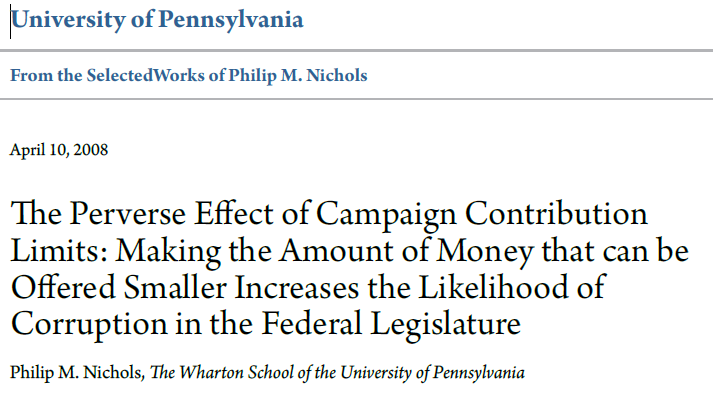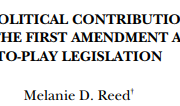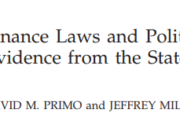Corruption is an important issue, which poses a special threat to the democratic institutions and integrity of the United States. The purpose of campaign finance regulation is to reduce or eliminate corruption. Congress has enacted substantial legislation for this purpose, yet corruption flourishes. This paper suggests that the campaign finance laws fail to take into account the actual decision-making process of a legislator contemplating a corrupt act. By diagramming that process, this paper demonstrates that the legislation, which focuses on limiting the size of individual campaign contributions, actually increases the likelihood of corruption. An understanding of the decision-making process points to other directions for meaningful regulation of campaign finance.
The Perverse Effect of Campaign Contribution Limits: Making the Amount of Money that can be Offered Smaller Increases the Likelihood of Corruption in the Federal Legislature
April 1, 2008 • By IFS staff • Academic Research • Contribution Limits














